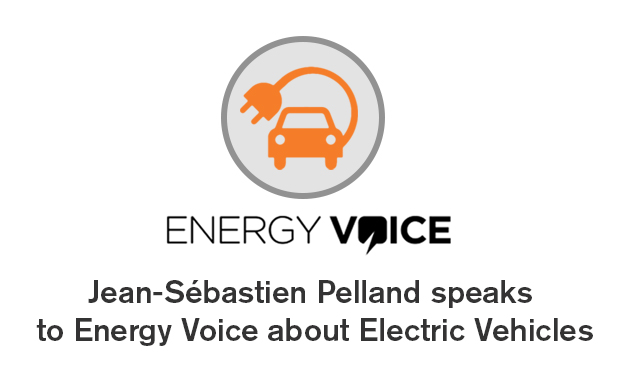Energy Voice: Is the UK ready to Drive electric?

While Arnold Schwarzenegger’s Total Recall imagined a future where we’d climb into a rather goofy looking ‘Johnny Cab’ to be met with a loquacious robotic driver, the future of today thankfully looks a lot more sophisticated in terms of electric vehicles (EVs).
As Oxford Council announced that they will trial a clutch of city charging stations, the government has gone even further with their announcement to ban the sale of all petrol and diesel cars from 2040.
Yet, the question still remains: how ready are we for EV’s?
“It’s a bit of a chicken and egg situation”, said Jean-Sébastien Pelland, director at Eland Cables and supplier to the EV market.
“The charging points have to be available wherever makes it most convenient for people to connect or it won’t appeal to general motorists. This is why hybrid vehicles have been more successful to date – combining the feel-good factor and eco-friendliness of an electric car with the practicalities of a petrol or diesel vehicle.”
Mr Pelland believes that it’ll be the countries whose governments collaborate with their respective energy sectors who will transition the quickest and with the least amount of fuss.
He said: “You’ve got a very large number of stakeholders, public and private sectors, who will have to collaborate, and that includes both the government and local councils, distribution network operators who will be using contractors and suppliers of the various component parts, such as Eland Cables.”
Given the 2040 commitment of both Britain and France to switch from traditional petrol and diesel to electric vehicles there is now a firm movement working towards that aim. Yet, as Mr Pelland has already pointed out, often it’s not government, but the market which dictates when such a transition shifts from fourth into fifth gear.
He said: “Britain wasn’t ready at all when the first electric vehicle was rolled out and still to this day it’s not fully viable until the infrastructure is in place. And the infrastructure won’t be put in place until there’s a need for it.
“Increasingly Britain is committed to [EV] technology. The details of how that’s going to evolve remains to be seen, but in short, if we see increasing improvement of the battery technology it’s allowing for the EV to match the functionality of that of the petrol and diesel cars.”
In order to transition with the least amount of controversy there will need to be a large cultural shift. Some believe that there currently aren’t enough positives to outweigh the negatives of what an EV can do when compared to a traditional petrol or diesel vehicle.
USEV, a team of students from the University of Strathclyde who have built their own electric vehicle in conjunction with Shell, believe that a shift in both infrastructure and attitudes is key to a successful transition.
Electrical engineering student Martin Riis strongly believes that the amount of charging stations put in place will be central to the early success but admits there are drawbacks to EVs that will be culturally difficult to overcome.
He said: “It really comes down to the number of charging stations and the speed of charging. If you think about a standard electric car without any fast charging capabilities, which takes several hours to fully charge and can make a journey much longer in terms of time.
“A journey from Aberdeen to Manchester would require an overnight stop somewhere while you wait for your car to charge and costs build up there.”
Mr Pelland also points to the lack of mid to high end EV options available on the market right now, which he believes is key to convincing consumers to switch, while eventually eliminating the ownership model altogether.
He said: “In terms of a cultural change, EVs don’t currently have the best image for the mass driving public. They were very popular with the early adopters but until recently there were no affordable midrange or luxury options in that market.
“Tesla have now rolled out affordable high-end vehicle which should make it a lot more attractive as an option to a lot of people. Let us not forget that cars remain a status symbol.
“Having said that, I think there is a gradual shift toward the pay-as-you-go model through services such as Zipcar or even Uber where you don’t even own the car and quite possibly you don’t even drive them yourselves. At which point the users will become a lot less concerned about the practicalities of the EVs.”